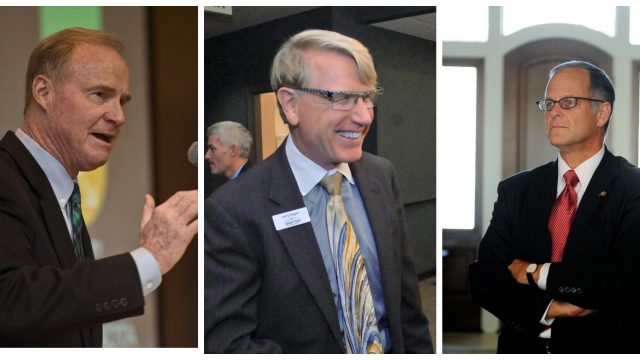John Andrist: Why Don't Universities Play By The Rules?

One of the hit songs from the Broadway musical, “My Fair Lady”, was a whimsical lament, “Why can’t a lady be like a man?”
My question this week is, “Why can’t our university system play by the rules”.
Just this past week came new allegations that the University System fired an employee/attorney for blowing the whistle, and she has now notified the Attorney General that there was very little likelihood that the 40,000 e-mails irresponsibly deleted by NDSU president Dean Bresciani were other than intentionally excised. Now they face a potentially costly lawsuit.
UND students are rebelling against their president. Dickinson State is still suffering from a grade hiking scandal, and a deposed president.
No state agency has been involved in more open meeting/open record violations than the Board of Higher Education.
It seems impossible to get a chancellor who is unwilling to cow-tow to the university presidents. So we keep ending up with chancellors whose first mission is to play ball with the school presidents, rather than to lead.
They get gifts to build new mansions for their presidents, then ignore common sense structures.
[mks_pullquote align=”right” width=”300″ size=”24″ bg_color=”#000000″ txt_color=”#ffffff”]It seems impossible to get a chancellor who is unwilling to cow-tow to the university presidents. So we keep ending up with chancellors whose first mission is to play ball with the school presidents, rather than to lead.[/mks_pullquote]
Those of us who have vainly tried to create a sound management structure have been dismissed as anti-higher education zealots. That’s hurtful, and it makes us bleed.
Even though I’ve “passed the torch to a new generation” I still pine for a centralized system that is focussed on people working together for the love of students, rather than one that is dominated by leaders who have primarily self-serving interests in which students are only tools for their personal success.
Short Sighted Republicans
I believe in the principle of low taxes and thrifty money management of our government, but get upset with colleagues who mischaracterize estate taxes.
The U.S. House voted to abolish them last week. Futile as the effort is it is an embarrassment to me.
They like to call it a death tax, taking money after we die. But everything of this world is taken from us when we die.
No dead person has ever paid a tax.
To advocate elimination of estate taxes is to say we think people who inherit lots of money should get a pass on paying a share of it in taxes — like those who have to work for it are required to do.
The current estate tax provides a whopping exemption of $5.4 million for grants to family members and friends. And the money they give to charitable purposes doesn’t count.
That’s enough to protect continuation of a family business or small farm, and still provide at least a silver parachute for those lucky enough to be born to successful parents.
In our own corner of the world there is a new wealth of oil royalties, most of which have been passed down as gifts from the departed. Call them quasi-gift bequests. Should they too be exempt from taxation?
But there are other social benefits to an estate tax. So much good is accomplished by charitable bequests which are incentivised by estate taxes.
Moreover, in every economic system there is a tendency for wealth to become more and more concentrated in fewer and fewer people. Estate taxes can’t change that, but it is one tiny leveling force.
I promised myself to quit writing so frequently about political things, but I guess you can get the boy out of politics, but you can’t get politics out of the boy.




